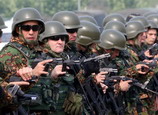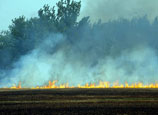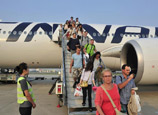
WASHINGTON, June 14 (Xinhua) -- The White House announced Thursday evening the U.S. would ramp up its involvement in Syria' s civil war, but it remains unclear what actions Washington will take next.
In a conference call with reporters, White House officials announced a U.S. investigation confirmed the use of chemical weapons by Syrian government forces, crossing the "red line" that President Barack Obama drew last year that he said would spark U.S. involvement.
But the Obama administration has so far been vague on what exactly it aims to provide to rebels in war-ravaged Syria, and the White House said the president would discuss the issue with European allies at next week's G8 summit in Northern Ireland.
Wayne White, former deputy director of the State Department's Middle East Intelligence Office, told Xinhua the most obvious and less risky course of U.S. action would be to resupply large quantities of various small-arms or shoulder-fired anti-tank weapons to rebel forces that have been "vetted" as not adhering to radical ideology.
Such a move, if taken, would involve training in Turkey and Jordan in the use of those weapons, said White, now a scholar at the Middle East Institute.
The Obama administration could also decide to provide limited quantities of SA 7 weapons systems to those rebel factions the U.S. has vetted, to see if they can be trusted not to share the weaponry with extremist fighters, he said.
A big problem, however, is that the most successful rebel units are militants, White noted, and separating them from secular rebels could prove a difficult task.
 |
















 Developer razes historic Guangzhou structures
Developer razes historic Guangzhou structures


![]()
